Our PhD student Karina Tristan invited Niklas J. Lang (MD candidate) to present at the CompCancer Literature Seminar, which will take place Thursday, 10th August, at 10 am.
It will be held in person at:
Maud Menten Hall
Philippstraße 13, Haus 18
10115 Berlin, Germany
[Google Maps link: https://goo.gl/maps/9zvz8Z48oTstZFjZ9]
If you are interested in joining online write an e-Mail to compcancer at charite dot de to receive the zoom link.
Paper: Ex vivo tissue perturbations coupled to single cell RNA-seq reveal multi-lineage cell circuit dynamics in human lung fibrogenesis
https://www.biorxiv.org/content/10.1101/2023.01.16.524219v1.full
ABSTRACT
Pulmonary fibrosis develops as a consequence of failed regeneration after injury. Analyzing mechanisms of regeneration and fibrogenesis directly in human tissue has been hampered by the lack of organotypic models and analytical techniques. In this work, we coupled ex vivocytokine and drug perturbations of human precision-cut lung slices (hPCLS) with scRNAseq and induced a multi-lineage circuit of fibrogenic cell states in hPCLS, which we show to be highly similar to the in vivo cell circuit in a multi-cohort lung cell atlas from pulmonary fibrosis patients. Using micro-CT staged patient tissues, we characterized the appearance and interaction of myofibroblasts, an ectopic endothelial cell state and basaloid epithelial cells in the thickened alveolar septum of early-stage lung fibrosis. Induction of these states in the ex vivo hPCLS model provides evidence that the basaloid cell state was derived from alveolar type-2 cells, whereas the ectopic endothelial cell state emerged from capillary cell plasticity. Cell-cell communication routes in patients were largely conserved in the hPCLS model and anti-fibrotic drug treatments showed highly cell type specific effects. Our work provides an experimental framework for perturbational single cell genomics directly in human lung tissue that enables analysis of tissue homeostasis, regeneration and pathology. We further demonstrate that hPCLS offers novel avenues for scalable, high-resolution drug testing to accelerate anti-fibrotic drug development and translation.
Niklas Lang's Bio:
Mr. Niklas Lang is a final-year medical student at LMU Munich (GER). He obtained his M.Sc. in Bioinformatics from the University of Edinburgh (UK) in 2020. He is now an MD candidate in the Lab of Dr. Herbert Schiller at the Institute of Lung Health and Immunity at Helmholtz Munich and the Comprehensive Pneumology Center of the LMU Klinikum. His research interest lies in understanding the spatiotemporal dynamics of cell circuits that orchestrate lung fibrogenesis through the lens of single-cell genomics.
